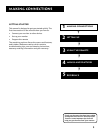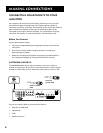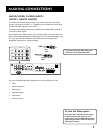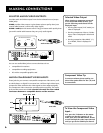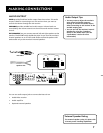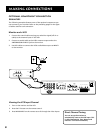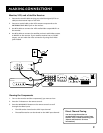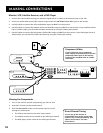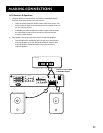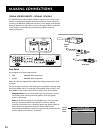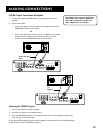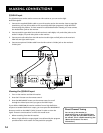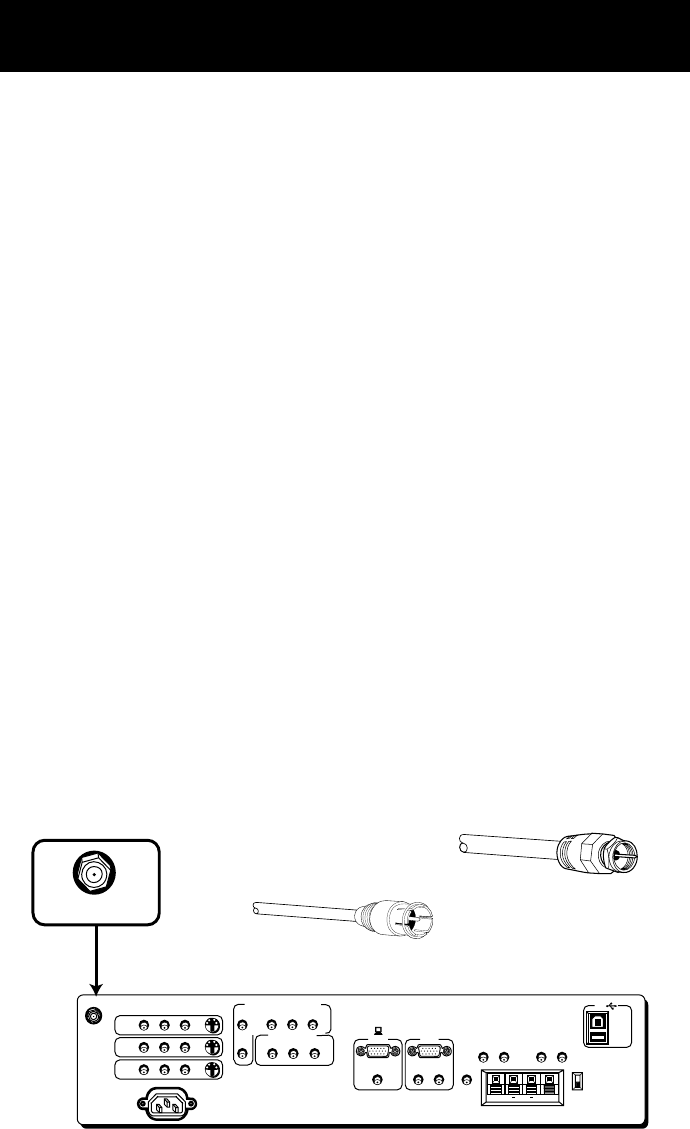
4
Making Connections
ANTENNA/
CABLE INPUT
POWER
VIDEO
AUDIO
L
R
INPUT1
INPUT2
INPUT3
S-VIDEO
AUDIO
R
L
YP
B
P
R
(S)VGA 1
STEREO INPUT
(S)VGA 2
AUDIO INPUTS
L
R
AUDIO OUTPUTS
FIXED
VARIABLE
LR L
R
EXT SPEAKERS
EXT
INT
L
R
++
USB
PC/
HUB
ANTENNA/
CABLE INPUT
COMPONENT VIDEO INPUT
DIGITAL TV
INPUT
DEVICE/
HUB
VIDEO
AUDIO
R
SELECTED OUTPUTS
L
G-LINK
Connecting Components to your
Monitor
Your monitor has several input and output jacks that you can use with
many different types of components. This creates a great number of
connection variations. Therefore, the following section shows the different
types of jacks and examples of the types of components that can be
connected to those jacks. Before you begin, it’s a good idea to read any
connection information in other components’ user manuals as well.
Before You Connect
Protect against power surges:
• Connect all components before plugging any power cords into the
wall outlet.
• Turn off the monitor and/or component before connecting or
disconnecting any cables.
• Make sure all antennas and cables are properly grounded. Refer to
the “Important Safeguards” sheet packed with your monitor.
Antenna/Cable In
The ANTENNA/CABLE IN jack lets you connect a screw-on or push-on
antenna or cable lead. Use this if you want the monitor to receive signals
through a coaxial cable from an antenna or other source, such as a VCR.
Screw-on
coaxial cable
Push-on coaxial
cable
You can use coaxial cables to connect devices such as:
• Antenna or cable leads
• Cable boxes
• VCRs
• Satellite receivers







